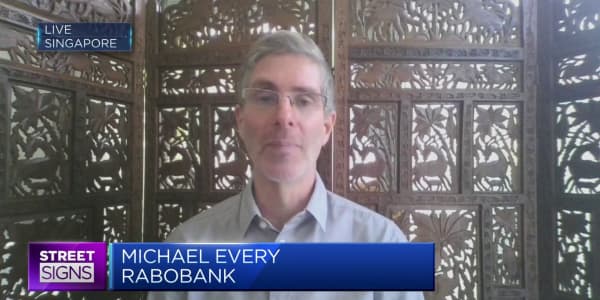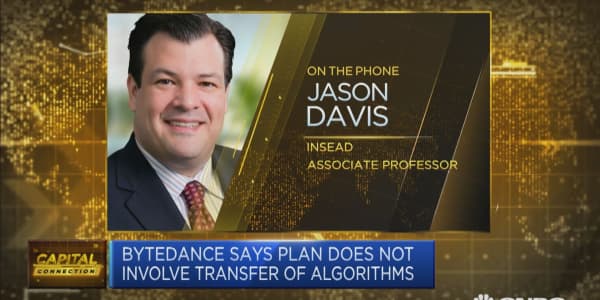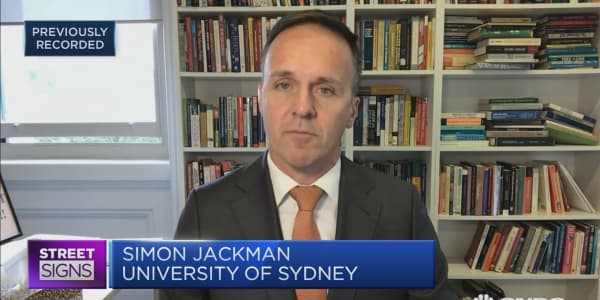The short-term spending deal reached by congressional Republicans late Tuesday includes a variety of spending measures and provisions unrelated to funding the government through April of next year, including $170 million in funding for the water crisis in Flint, Michigan, and language that would ease the confirmation of retired Marine Gen. James N. Mattis as Secretary of Defense. Conspicuously absent from the continuing resolution expected to pass the House easily on Thursday: a provision restoring full lending powers to the embattled Export-Import Bank.
Ex-Im, as the agency is known, supports billions of dollars of U.S. trade financing annually, supporting thousands of U.S. jobs. But in fiscal 2016, job numbers have dropped dramatically as a result of the cutbacks.
The agency has been operating with just two board members for nearly 18 months, one board member shy of the three needed to approve transactions greater than $10 million. The agency — which guarantees loans to foreign companies wishing to purchase U.S. goods — faces opposition from a contingent of Republicans in Congress who views Ex-Im's use of government dollars to backstop deals for U.S. companies as "corporate welfare." Those opponents have effectively blocked new nominations to Ex-Im's board, severely limiting the agency's ability to carry out its mission.
Last week the Obama administration asked that the funding bill include a provision that would allow Ex-Im to operate at full capacity for up to three years with only two board members. GOP lawmakers, including Sen. Lindsey Graham (R-S.C.) and Rep. Charlie Dent (R-Penn.) — who attached similar requests to spending bills last week — have also come out in support of restoring Ex-Im's full lending powers, going up against congressional colleagues like Rep. Jeb Hensarling of Texas that have vowed to shutter Ex-Im.
But the larger question surrounding the long-term existence of the Export-Import Bank will be answered by the incoming Trump administration, which has yet to weigh in publicly on the matter. Fred Hochberg, chairman and president of Ex-Im Bank, is confident that Ex-Im's core focus on boosting the competitiveness of U.S. exports abroad and preserving jobs at home dovetails with the president-elect's stated economic agenda.
Others aren't so sure.
"If this thing is going to be rescued, it's going to have to be rescued by the president," said Richard Aboulafia, vice president for analysis at aerospace industry consultancy Teal Group. "And he's implied that he won't go to bat for it."
A hot-potato issue
The Export-Import Bank is 1 of nearly 100 export credit agencies representing countries around the world. The independent agency supports U.S. exports by backstopping loans needed by foreign governments or companies to purchase U.S. goods, typically costly capital goods, like jetliners, heavy equipment or infrastructure components. As such, companies like Boeing, General Electric and Caterpillar account for a large chunk of the loans Ex-Im guarantees in a given year.
The heavy weighting of Ex-Im's larger loan guarantees toward a relatively small pool of big U.S. companies lends ammo to critics of the bank in Congress, who claim the U.S. government shouldn't be in the business of helping corporations cut deals abroad.
Supporters of the bank counter that Ex-Im doesn't provide loans itself, but merely guarantees them in cases where customers might otherwise have trouble obtaining financing. Further, its record at backing worthwhile loans is respectable; Ex-Im is the rare government agency that actually makes money, returning some $7 billion to federal coffers over the past two decades.
Perhaps more crucially, if Ex-Im doesn't step in on behalf of U.S. companies, other nations' credit export agencies will step in on behalf of their own industrial concerns, Aboulafia said. "The Ex-Im bank is probably one of the few forms of government intervention that is both harmless and can make a difference," he said.
The bank's opponents in Congress first tried to kill Ex-Im in June of last year by refusing to reauthorize the eight-decade-old agency's charter. Supporters managed to revive it five months later, tucking a provision into a spending bill extending the bank's authorization into September 2019. But Republicans in Congress have failed to confirm new nominees to Ex-Im's board, leaving it short of the three-member quorum it needs to approve large loan guarantees.
"We've got in the range of $30 billion dollars' worth of transactions that are like planes circling the airport trying to land, and we don't have enough board members to get them down," Hochberg said. "That's a lot of jobs."
In 2014, Ex-Im supported $20 billion in financing, supporting some 165,000 jobs by the bank's estimates. Lacking a quorum, the bank supported just $5 billion in financing — or 52,000 U.S. jobs — in fiscal 2016, its lowest output in four decades. "The world has changed; it's more competitive; exports are more prominent," Hochberg said. "And yet we're operating at a level that we haven't seen in more than 40 years."
Ex-Im Bank 2.0
For his part, President-elect Trump has yet to weigh in on the Export-Import Bank specifically, and it's unclear whether the president-elect will go against conservative critics of the bank in Congress. "There's not a lot of core knowledge in the world of economics that's been working with the team," Aboulafia says of the incoming administration. "That's going to change fast, but there's so much we don't know, because there's so much they don't know."
One factor that could sway the president-elect in favor of preserving Ex-Im is an unprecedented opportunity to shape the agency as he sees fit. Because of the nuanced way Ex-Im board appointments work — and because some of the seats have been held vacant for so long — the new administration has the opportunity to pack the board with nominees that share his vision when he takes office in January.
"Both Congress and the new president can really shape the complexion of the board entirely," Hochberg pointed out. That, coupled with a shared mission, should make the continued existence of Ex-Im attractive to the new administration.
"The president-elect has demonstrated with Carrier and others to be very muscular in his support for U.S. jobs, muscular in support that we retain jobs for this country, that we don't ship jobs overseas, that we don't let other countries take sales and support jobs in their own countries," Hochberg said. "That's exactly what we do at the Export-Import Bank."

We've got in the range of $30 billion dollars' worth of transactions that are like planes circling the airport trying to land, and we don't have enough board members to get them down.Fred Hochbergchairman and president, Ex-Im Bank
If Ex-Im were shuttered by the incoming administration, Boeing would be hit particularly hard by its loss of dealmaking power across the globe as European rival Airbus would continue to enjoy the backing of France's export credit agency. On Friday, Boeing CEO Dennis Muilenburg spoke out against the anti-trade rhetoric that characterized the recent election cycle, insisting that the United States must continue to lead on global trade rather than withdraw into protectionist policies.
"If we do not lead when it comes to writing these rules, our competitors will write them for us," Muilenburg said at an event hosted by the Illinois Manufacturers' Association. "For Boeing, that could result in higher costs, disrupted supply chains and regulations that diminish our ability to sell products around the world."
Muilenburg called the lack of a board quorum "frustrating," a feeling compounded by the fact that a majority of Congress approved the reauthorization of Ex-Im last year. Like Hochberg, Muilenburg noted that it's a small but vocal minority in Congress that has managed to block nominations to Ex-Im's board (chiefly Alabama Republican Sen. Richard Shelby) and otherwise imperil the bank. Boeing is the Ex-Im bank's single largest beneficiary in terms of dollar value of loans guaranteed.
If the Trump administration fails to go to bat for Ex-Im, and its opponents succeed in shutting it down, companies like Boeing have very few tools with which to boost their competitiveness abroad, Aboulafia says. "It isn't looking good, and we don't know what the impact is gonna be," he said. "The U.S. is going to be the only manufacturing economy in the world without an export credit agency, and that's going to be difficult."
— By Clay Dillow, special to CNBC.com




